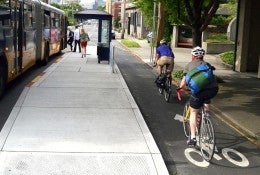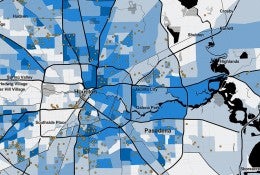Urban Edge
Study reveals effects of white privilege in FEMA flood buyout program
Research from Rice University sociologists shows urban areas and predominantly white neighborhoods that are at risk of flooding in cities benefit the most from FEMA’s voluntary buyout program.

Why the pedestrian experience shouldn’t be so ... pedestrian
Transit equity benefits all of society — both those who use it and those who don’t. It provides access to jobs, schools and other opportunities to underserved communities, people who can’t afford the costs related to owning a car as well as those who use it because of convenience or to limit their contribution to the problems of congestion and pollution. In turn, the reductions in traffic and emissions they represent benefit those who drive. But we should also consider the equity of infrastructure such as sidewalks, crosswalks and drainage, all of which affect connectivity, accessibility and safety for people who walk, roll and ride bikes in Houston.

How buses can drive equity and success in cities — and even help kill zombie ideas
Ridership in most major metropolitan areas of the U.S. has been steadily declining in recent years. And transit experts worry about the trend’s impact on cities — economically and socially. But when you improve buses, as the experience in Houston and in so many other places shows, ridership and relevancy increase.

The housing voucher program isn’t perfect, but it’s essential
How much do you know about the 45-year-old federal housing assistance program that was created to help those with the nation’s lowest incomes access better opportunities and escape poverty?

Financial insecurity plaguing families could cost Houston millions
Despite month after month of strong jobs reports and an economy seen as robust by most analysts, many families in Houston are struggling to make ends meet and afford basic household necessities.

Physical Address
Rice University
Kraft Hall
6100 Main Street, Suite 305
Houston, TX 77005-1892
